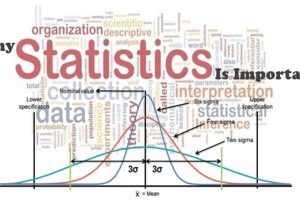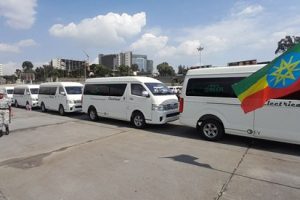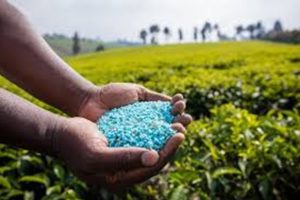
BY TEWODROS KASSA
According to different researches, currently, only 1.1 million tons of fish is annually harvested only from lakes and trans-boundary Rivers in the Intergovernmental Authority on Development (IGAD) region.
However, the region has an estimated potential of over 3 million tons of annual fish productions. Thus, active community and experts involvement strengthens the IGAD’s efforts and aspirations of harnessing the untapped regional fisheries resource potentials, experts recommended.
Recently, IGAD held its second Fisheries Coordination Platform (IFCP) workshop in Addis Ababa. IGAD emphasized the need for genuine cooperation among IGAD members, Southern Africa and the Indian Ocean and set joint actions of member states towards utilizing the untapped fisheries potentials of the region.
On the occasion, IGAD Sustainable Environment Protection, Agriculture and Environment Division Regional Fisheries Management Expert, Wassie Anteneh (PhD) said that establishing a tangible cooperation among member states is fundamental to utilize the region’s fisheries potentials sustainably.
According to him, the workshop eyes creating joint cooperation among member states to create a conducive fisheries harvesting and trading system. Over exploitation, lack of capacity, infrastructures, knowledge, among others are the major challenges hindering the regional fisheries resources utilization.
On his part, Agriculture State Minister Fikru Regassa said Ethiopia is working to utilize its fish resource and cooperating with IGAD. Ethiopia has paid significant attention to the fishery and aqua culture development in its 10-year strategic development plan and agricultural plan.
According to him, the workshop helps review the performance of the Eco-fish programs and activities at the sub-regional IGAD and at national level. IGAD Secretariat has multilateral projects that are implemented in Ethiopia. The Ethiopian government will closely collaborate with IGAD Secretariat regarding fishery development, management processes and expected results of cooperation.
IGAD has started assisting Ethiopia’s fishery sub-sector and it is in the process of supporting its National Blue Economy Strategy.
Representative of IGAD Executive Secretary, Abebe Beyene said that the IGAD region is endowed with very diverse inland and marine ecosystems of immense fish resource that needs better attention and coordination to use it.
Five IGAD member states, namely Sudan, Eritrea, Djibouti, Somalia and Kenya, are coastal countries with a total of about 7,000 KM length and about 1.2 million kilometer square exclusive economic zone, he noted.
“The fish productivity in this marine zone is very high. Generally, the Red Sea and Gulf of Aden region is globally known for the uniqueness of its costal and marine bio-diversity. Despite the potential resource that could be used to ensure food security and export both in IGAD member states and in Africa, there is less attention and focus to develop the fisheries sub- sector. Thus, the Ecofish is crucial in a bid to promote synergies at a time resources are limited and fishery resources are depleting at an alarming rate,” he added.
However, fishery activity in the region is often illegal, unreported and unregulated, especially in Somalia, he said, further pointing out that lack of economic zone is also a challenge except in Kenya.
EU’s flagship project in East Africa, Southern Africa and Indian Ocean region Manager, Madev Balloo, stated that the meeting is aimed at strengthening inter-regional collaboration of the IGAD sub-region to promote sustainable, inclusive and integrated management of fisheries resources.
The EU thus, recommends Indian Ocean Commission, IGAD and all the relevant stakeholders to promote the activities that feature mainly strategic action of the marine work plan.
Presenting the progress of IGAD Ecofish Fisheries Coordination Programme, Ecofish Programme Technical Coordinator Soobasch Sweenarain (PhD) said that promoting effective collaboration and partnership between IGAD member states is fundamental to effective implementation of the sub-regional and national fisheries potentials.
The active participation of the private sector is also important to develop the wide fisheries potentials. Moreover, it is helpful to establish tangible fisheries resource co-management in the region, he said.
Accordingly, the Ecofish Programme is a Cross- Regional Initiative that is expected to ensure seamless collaboration and partnership among IGAD and its partner countries. The Ecofish Initiative is funded by the European Union (EU) to leverage regional cooperation for enhancing sustainable inland and marine fisheries in Eastern Africa, Southern Africa and the Indian Ocean (EA-SA-IO) region. It has a total budget of 28 million Euro for over 62 months that was started in July 2019. However, its implementation has been delayed by the social restrictions provoked by the COVID-19 pandemic in the region.
Setting up a Fisheries Coordination Platform in the IGAD region is part of the Ecofish marine work plan strategic action towards strengthening regional coordination and cooperation for the sustainable and integrated management of fisheries resources in Eastern Africa, Southern Africa and the Indian Ocean (EA-SA-IO) region.
The programme aims to enhance sustainable management of inland and marine fisheries to contribute to the time-bound socio-economic and ecological goals of the UN Agenda 2030 and the Africa Agenda 2063. It will also bring about tangible socio-economic benefits to the member states.
The first IGAD Fisheries Coordination Platform (IFCP) was organized in Addis Ababa from September 5-6, 2021. It was a hybrid meeting (both physical and virtual) due to COVID-19 restrictions. As stated in the terms of reference validated during the first meeting, IGAD, in collaboration with the Ecofish will provide the required secretarial services to the IFCP, including the preparation of Concept Notes, Background Papers, and other meeting documents, including invitations, agenda, and previous notes of the meeting. The Secretariat will also follow up on the regional and national chapters of the Ecofish marine fisheries work plan and other project activities. It will also update the chairperson on pertinent issues.
Accordingly, the main objectives of the Fisheries Coordination Platform is to complement the endeavors of the Marine Fisheries Work Plan Steering Committee to ensure seamless collaboration and partnership among IGAD and its partner countries as well as better coordination with other coastal and island countries of the region.
In sum, the IGAD region is included in the highly food insecure areas, with over 50 million people facing chronic hunger and poverty. Freshwater, marine and coastal fishery and other aquatic resources are, thus, social and economic development opportunities to ensure food security in the IGAD region.
The second IFCP workshop reviewed the performance of the Ecofish programme activities at the sub-regional (IGAD) and national levels. It also discussed and provided inputs on the Concept Note on the establishment of regional fisheries body proposed by IGAD and Ecofish Programme Management Unit. It enables member states to share best experiences from the various initiatives of the fisheries sector in the IGAD region.
THE ETHIOPIAN HERALD TUESDAY 23 AUGUST 2022





